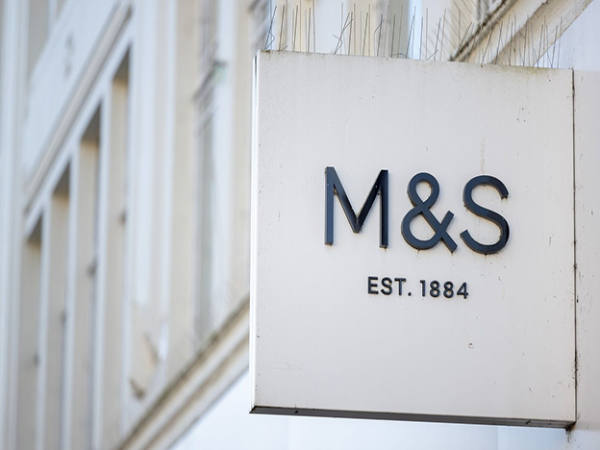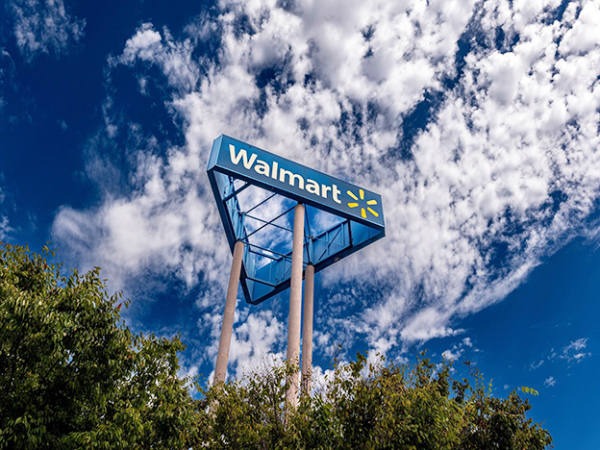Last month, in our introduction to the gaming sector and our review of the UK-listed companies in the sector, we highlighted that a key driver was how companies are positioned to benefit from the legalisation of online sports betting in the US; online sports betting is now legal in more than 30 states.
Another important dynamic is how reliant an operator is on the grindingly slow broadening of in-person casino or slot games across different states. Around 20 states now allow commercial gambling in land-based and riverboat casinos, ‘pari-mutuel’ racetrack betting (totalised betting like the UK’s Tote rather than fixed odds), and other in-person sports betting. This area of the industry still dominates the listed US gambling sector. Another 20 or so states also have casinos on tribal land, and overall there are still more tribal than commercial casinos across the US. There is limited scope for investors to participate in the tribal sector (there are a handful of joint ventures), and if anything this very distinct sector is something of an albatross for the commercial operators.
While UK-listed stocks have been able to cherry-pick their investments in the US to focus on online gaming and online sports betting, investment in US gambling stocks largely gives exposure to the far less dynamic casino and other in-person betting sectors.
Expected annual growth in the US casino market is steady at around 4.5 per cent (GDP + slow industry expansion) until 2027, but online sports betting has a forecast growth rate of more than 17 per cent. So investing in a US gaming operator, one usually has to take the rough with the smooth, with online sports betting very much playing second fiddle to the casinos. Another major problem when looking at the US listed players is that the market leader in the more attractive segments, FanDuel, is owned by the UK’s Flutter (FLTR).
Other leading stocks
Las Vegas Sands (US:LVS)
This is the largest stock in the sector by market value but has not been a great investment, with an exceptionally flat share price since the end of the great financial crisis. The company actually does no business in the US, but rather in Singapore and Macau – the offshore betting enclave in a special administrative region (SAR) of greater China. Returns over 10 years have averaged 4.5 per cent and the share price is exceptionally volatile. Best look elsewhere.
MGM Resorts (US:MGM)
The number two by market cap is a casino resorts operator with a large skew towards Las Vegas (two-thirds of revenues) with the bulk of the remainder coming from 13 other US states, and a smaller tail from Macau. There is a sizeable interest in online gaming and gambling; the BetMGM joint venture with Entain (ENT), which is heading towards revenues of $2bn within 12-18 months, has a fast-growing presence here. In Q1 of 2023, growth in this division was around 100 per cent. For context, MGM’s core resort revenues are around $15bn a year. While hotel revenues are rising well, this is still largely a Covid rebound, and casino revenues are fairly pedestrian. The BetMGM side is really overshadowed by the more lumbering resorts arm, and Entain looks to be garnering much more value for shareholders from the venture. Some value here, but not a lot.
Caesars Entertainment (US:CZR)
At number three is another resort operator, this one almost entirely focused on Las Vegas in-person gambling. Caesars was formed when, under its former name, Eldorado, it acquired a different business also called Caesars, giving it a very strong footprint in Las Vegas. Like MGM, this is a business focused on resort gambling but it does have an online sports book business formed after it acquired the UK’s William Hill in 2021 for $3.7bn; it has since sold the non-US parts to 888 (888). Named Caesars Sportsbook & Casino, this operates in 28 states, accounts for around 5 per cent of group revenues and is a heavy lossmaker ($1bn-plus Ebitda across 2021 and 2022) – Caesars only makes profits of around $2bn overall. This is another business that is led by the slower physical casino business, but it is likely to see an additional kick from its online offering – although this looks to be wrapped up in the high valuation already.
Both Caesars and MGM also risk cannibalising their in-person play by growing their online businesses.
DraftKings (US:DKNG)
This is the fourth-largest US-listed gaming stock and the only pure-play online operator with a focus on real and fantasy sports betting. Fantasy sports play is nothing new, but rather than the more traditional season-long leagues, players here can run on a daily or specific game/series basis – this is called daily fantasy sports or DFS. Winners of each event receive cash prizes. Interestingly, DFS was not outlawed in the same way as actual sports betting, and at the point that the Professional and Amateur Sports Protection Act of 1992 (Paspa) was overturned, DFS was legal in 18 states as it had been ruled a game of skill. This gave DraftKings and fellow DFS leader FanDuel (thus the origin of the name) a major head start when true sports gambling was legalised.
While FanDuel is the market leader in online sports betting (with a market share of around 45 per cent), DraftKings is a strong number two, albeit around half the size, controlling around a quarter of the market. It has managed to hold this market share position since 2019 when it was joint market leader with Caesars. DraftKings is also a major force in online casinos and slots, where it also controls around 25 per cent of the market: this time it's number two behind BetMGM (at 30 per cent). This is a smaller market than online sports betting.
This business is still heavily lossmaking despite being one of the first businesses to become established after Paspa was reversed in 2018, and consensus forecasts do not expect to positive pre-tax profits or earnings per share (EPS) until 2026. That said, the rate of sales growth is very high, with revenues up 84 per cent in Q1, which saw another forecast upgrade continuing the steady increase seen in expectations over the past two years. Revenue forecasts are one-third higher than they were two years ago, and pre-tax expectations for 2025 have swung from over $500mn of losses to just $40mn in the red.
The share price performance has been dramatic, with a more than sixfold rise between its Covid low point and the third quarter of 2021, before all of that gain was surrendered in the following nine months. The shares have again doubled from that recent low. Part of the problem here was the rout in the technology and high-growth sectors at the end of 2021, and as this is a pure online business with very high growth, DraftKings was swept along. Valuing lossmaking businesses is tough and subjective, but if we look at this as a tech-oriented business, we can look at something called the ‘rule of 40’. We looked at this previously when assessing the technology sector. This ‘rule’ says that when adding the growth rate of the business to the margin (usually the gross), any result consistently above 40 means that the business is attractive and will deliver substantial value as it matures – DraftKings consistently beats this threshold (see table).
| Table 1: DraftKings: ‘Rule of 40’ record | ||||||
|---|---|---|---|---|---|---|
2021 | 2022 | 2023 | 2024 | 2025 | 2026 | |
Gross margin % | 39 | 34 | 42 | 46 | 47 | 50 |
Revenue growth % | 111 | 73 | 43 | 21 | 20 | 16 |
Rule of 40 score | 149 | 107 | 85 | 67 | 67 | 66 |
| Source: FactSet | ||||||
This is a business holding 25 per cent of a market already worth $17bn (annualising Q1 2023 data) and forecast to be worth $37bn by 2027, and even assuming market share slips. It should be capable of making more than $1bn in earnings within five years. You can buy those future earnings today against a market capitalisation of only $11bn. Against today’s $25 share price, $35 is possible and this would be our pick of the bunch here.
Wynn Resorts (US:WYNN)
This is the fifth-largest US gambling company, and is primarily a resorts operator in Nevada and Macau. It does have an online business, but this generates only around 1-2 per cent of Wynn’s total income, its revenue runs only into the tens of millions, and in the most recent quarter sales actually dropped. When the Covid rebound subsides, profit growth is actually forecast to be below the growth in the casino market overall. With the shares having doubled in the past six months, it is hard to see any real value here.
Gaming and Leisure Properties (US:GLPI)
This is a $13bn real estate investment trust (REIT) that specialises in owning and leasing casino resort hotels to operators. Sometimes the tangential businesses can be more interesting than the direct operators, but that is not the case here. In-person gambling is not growing very fast and into a period of higher interest rates after a long period of virtually zero interest rates, capital values for hotel real estate are likely to be flat at best. This is a yield stock, however, offering income of 5.8 per cent and physical casinos, while slower growing, are a long-term stable sector that should be able to underpin that level of distribution.
Boyd Gaming (US:BYD)
Another resort operator, but interestingly Boyd is a partial shareholder in FanDuel, the business majority owned by the UK’s Flutter. Boyd owns 5 per cent and is strategically important as it provides the local footprint needed by FanDuel to operate. This is a business offering little or no growth from its owned operations and it is only delivering around 5 per cent EPS growth through the FanDuel holding. The share price has been flat for 2.5 years, which feels unlikely to change.
Other in-person operators
The roll call of other in-person casino operators listed in the US is considerable, but given the leading positions in online sports betting and online gaming already established by the leaders, these smaller operators will struggle to benefit from the more rapid growth in online play. One could consider the likes of the $5bn Red Rock Resorts (US:RRR), but like Full House Resorts (US:FLL), Golden Entertainment (US:GDEN) and Monarch (US:MCRI), its share price has moved only sideways in the past 18-24 months as the Covid rebound has run out of steam and there is little online presence. Ballys (US:BALY) could be a recovery stock (albeit risky) having shed 80 per cent of its value in the past two years, and within the past month has formed a joint venture in online sports betting. Churchill Downs (US:CHDN) is a business heavily skewed to horse racing (it owns the iconic Kentucky Derby) and while it has an online gambling portal, it is only for track racing; players today want diverse and ‘creative’ betting options in sports.










